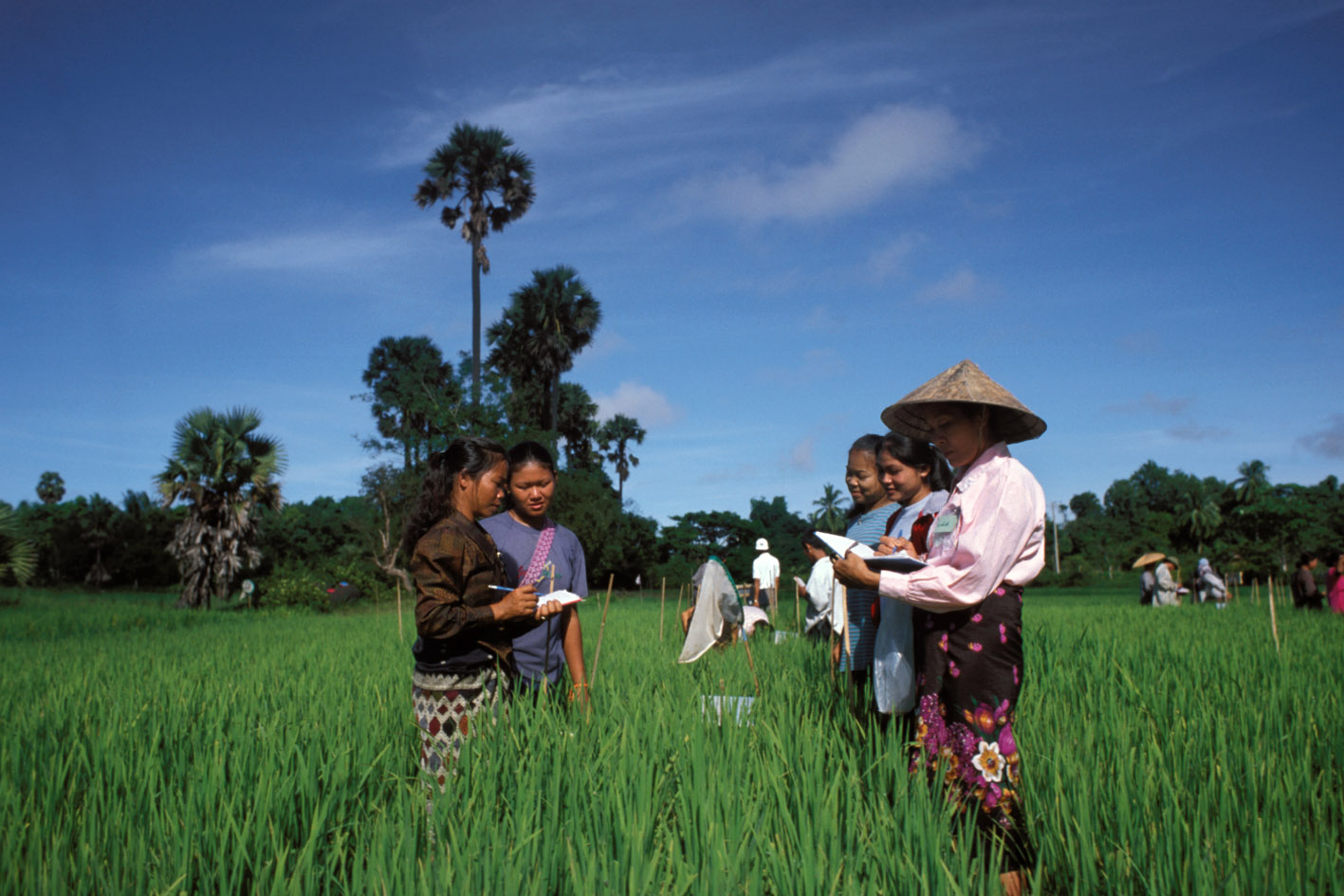Commercial Training 2008-2011
Ghana, 2008 - 2011
Get MicrodataIdentification
GHA_2008_CT_v01_EN_M_v01_A_OCS
Commercial Training 2008-2011
| Name | Country code |
|---|---|
| Ghana | GHA |
Socio-Economic/Monitoring Survey [hh/sems]
The evaluation had the primary objective of measuring the impact of the FBO training program on farmers' farm productivity and crop income. It was based on a randomized phase-in approach, taking advantage of the fact that not all FBOs that were to be part of the program could be trained at the same time, and so implicit in the program design itself was some degree of phasing. At the core of the impact evaluation was a difference-in-difference approach designed to measure the difference in agricultural output between the treatment group (a collection of FBO members who received commercial trainings in 2008 and 2009) and the control group (a collection of FBO members who received commercial trainings a year later). The Farmer-Based Organization (FBO) Survey series is a collection of data designed to evaluate the impact of these trainings on farmers in Ghana. To aid the survey and enable the implementation of the difference-in-difference approach, the FBOs were divided into two batches and each farmer was to be interviewed twice: once at baseline and again after one year. Batch 1 treatment and control farmers were surveyed in November-December 2008 and again in February-April 2010. Batch 2 treatment and control farmers were surveyed in February-April 2010 and again in November 2010-January 2011. In total, approximately 6,000 farmers -- 3,000 in the treatment group and 3,000 in control group -- were surveyed.
Sample survey data [ssd]
Households
Scope
-Household members
-General education
-Health
-Activity and occupation
-Migration
-Transfers
-Information seeking
-Savings, credit & assets
-Housing characteristics
-Agriculture
-Non-farm interprises
| Topic | Vocabulary |
|---|---|
| Agriculture & Rural Development | FAO |
| Access to Finance | FAO |
| Migration & Remittances | FAO |
Coverage
Regional
Producers and sponsors
| Name |
|---|
| The Institute for Statistical, Social and Economic Research (ISSER) |
| Name | Role |
|---|---|
| Millennium Challenge Corporation | Funded the study |
Sampling
The Farmer-Based Organization (FBO) Survey covered farmers in three (3) Millennium Development Authority (MiDA) operational zones and the sample was selected in two (2) stages. In the first stage, FBOs were selected within each zone. MiDA made 600 FBOs available to the survey group, all of which were used in the sample. FBOs were randomly assigned to either receive the early trainings (Batch I) or the late trainings (Batch II). In the second stage, five (5) farmers were selected from each of the 600 FBOs. Each batch contained approximately 3,000 farmers and 6,000 farmers in all were interviewed.
Researchers noted that there seemed to have been some level of contamination of the control group -- a problem that the farmers in the southern zone raised. There were two sources of this contamination. One was from the control farmers attending training sessions meant for the treatment group. The other source was engendered by the situation where farmers who got the training went around to their colleagues in the control group (who may have been part of some "original" groupings) and taught them what they had learned. Whereas the first was an implementation challenge, researchers noted, the second reflects positive spill overs of the training.
Approximately 82 percent
Refer to study dataset.
Data collection
| Start | End | Cycle |
|---|---|---|
| 2008-11-01 | 2008-12-30 | Batch I (Round 1) |
| 2010-02-01 | 2010-04-30 | Batch I (Round 2) |
| 2010-02-01 | 2010-04-30 | Batch II (Round 1) |
| 2010-11-01 | 2011-01-31 | Batch II (Round 2) |
Data Access
| Is signing of a confidentiality declaration required? | Confidentiality declaration text |
|---|---|
| yes | https://microdata.worldbank.org/index.php/terms-of-use |
Institute of Statistical, Social and Economic Research, University of Ghana. An Impact Evaluation of the MIDA FBO Training. 2012.
Disclaimer and copyrights
The user of the data acknowledges that the original collector of the data, the authorized distributor of the data, and the relevant funding agency bear no responsibility for use of the data or for interpretations or inferences based upon such uses
Contacts
| Name | |
|---|---|
| Monitoring & Evaluation Division of the Millennium Challenge Corporation | [email protected] |
Metadata production
DDI_GHA_2008_CT_v01_EN_M_v01_A_OCS_FAO
| Name | Affiliation | Role |
|---|---|---|
| Office of Chief Statistician | Food and Agriculture Organization | Adoption of metadata for FAM |
| Millennium Challenge Corporation | Metadata entry |
Metadata version
GHA_2008_CT_v01_EN_M_v01_A_OCS_v01
